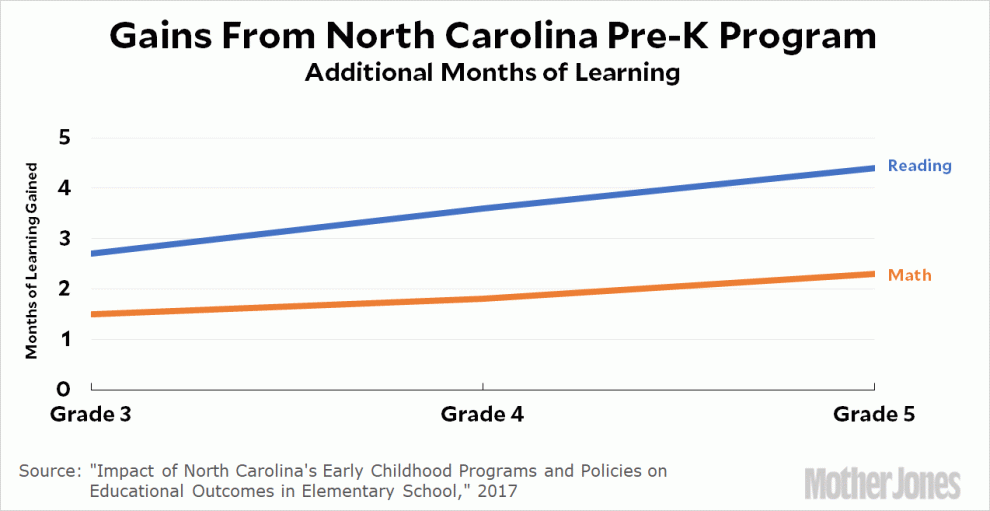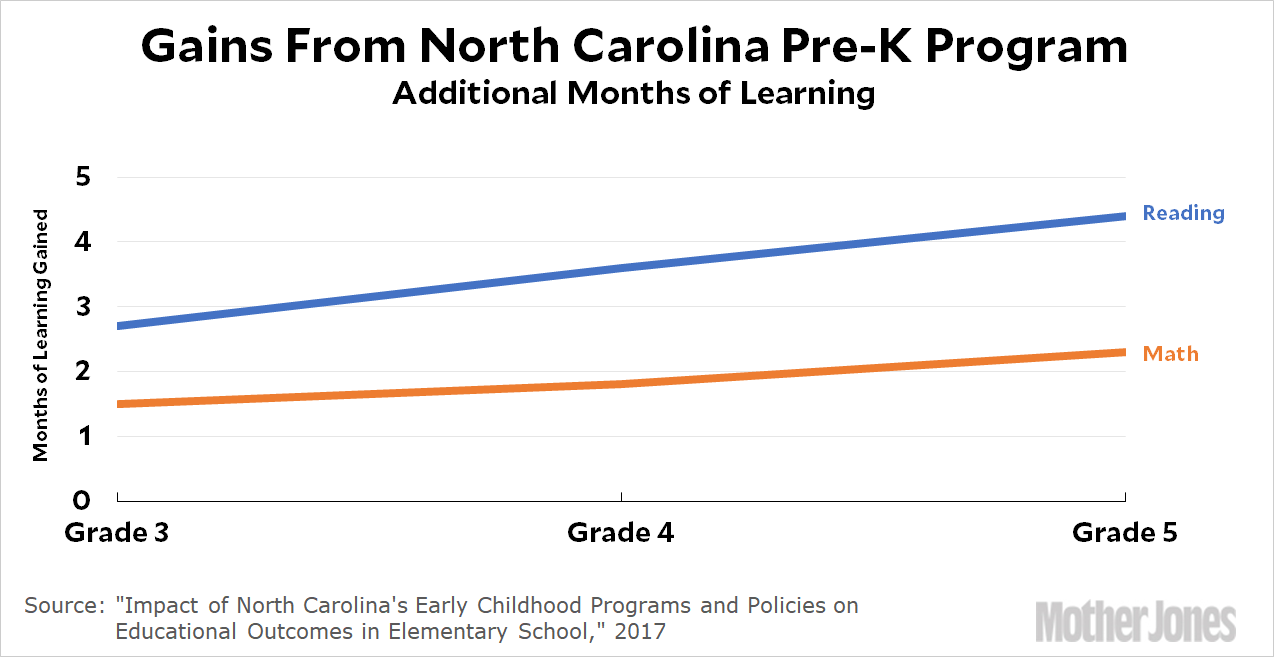
Two years ago a team of researchers at Duke University published a study of North Carolina’s “More at Four” pre-K program, a state-funded program for “high-risk 4-year-old children, with risk defined as annual family income at or below 75 percent of the state median, limited English proficiency, disability, chronic illness, or developmental need.” Here are the results:

The authors concluded that all the way up to grade 5, children continued to show benefits from the program (which has since been renamed “NC Pre-K”). Today, the lead researcher, Kenneth Dodge, reports that the benefits continue at least through middle school:
Our new analyses, about to be released as a working paper, show that the positive impacts of NC Pre-K … continue through grades 6, 7, and 8. There is no fadeout. In fact, the impact grows. By eighth grade, for children in counties with average funding, NC Pre-K has reduced the likelihood of placements into special education by over one third. We find positive impacts for every group of children we studied, including economically disadvantaged as well as advantaged children; African American, Hispanic, and white non-Hispanic children; and children whose mothers are well-educated as well as those whose mothers are less well-educated.
The findings are clear: The more funding that North Carolina invests for NC Pre-K, the better children will fare as they get older. The benefits from that investment will not fade out but will grow over the lives of these children.
A second program, “Smart Start,” which is targeted at providing services to children ages 0-4, also showed benefits, but they were much smaller. If these results hold up, it means that pre-K programs have yet another good program to model themselves after.
The real hurdle, of course, is high school, which is where the benefits of programs like this typically fade out. In another three or four years, we’ll have data on that too.








